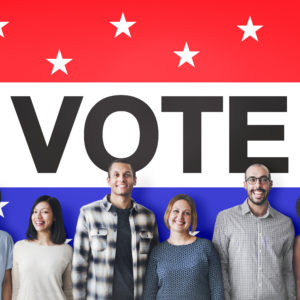The fight for voting rights goes on, even though every Senate Republican, joined by Sens. Joe Manchin (D-W.V.) and Kyrsten Sinema (D-Ariz.), tried to shut it down on January 19. They refused to adjust a Senate rule best known for obstructing civil rights legislation. The filibuster rule – requiring 60 votes to advance most legislation if any senator objects – has been modified or waived more than 160 times in recent decades. Just in December, an exception was granted for legislation dealing with the debt ceiling, with the support of Manchin and Sinema and some Republicans. Yet somehow they decided voting rights were not important enough to warrant any adjustments to the rule.
The work to bolster democracy and the freedom to vote must continue as many GOP legislators across the country pass a new generation of Jim Crow laws to make it harder for many Americans to vote – particularly in Black, Brown, and Indigenous communities. Last year’s voter suppression push saw 19 states enact 34 restrictive voting laws. Already this year, 382 bills have been introduced that would restrict voter access or election administration. Among other things, these bills could lead to purges of eligible voters, cut back on early voting and no-excuse mail voting, and lead to sham post-election reviews of results. Hearings for these bills are underway now.
The fact remains that despite Senate obstruction, public polling showed the Freedom to Vote Act and the John Lewis Voting Rights Advancement Act—to create fair national standards for how federal elections are conducted and to repair and strengthen the Voting Rights Act—have broad bipartisan support among Americans, including large numbers of Democratic, Republican, and independent voters.
That’s why there was an outpouring of grassroots support for this legislation. Americans organized and attended protests and community events, talked to their friends, neighbors, and family, and did so much more. They called and emailed their legislators, drafting scores of letters to the editor. They put it all on the line – and our democracy is the better for it.
We must not overlook the historic strides we made in recent months. The House passed voting rights legislation three times this Congress. When the legislation came up in the Senate, the bills had at least 50 supporters and the vice president’s tie-breaking endorsement.
All of us have an important role to play in what happens next. We know that significant federal legislation often takes a winding path before Congress passes transformative reforms, but we are not giving up the fight. We will look toward must-pass bills and other mechanisms to ensure a Congressional response stays on the agenda, leaving no stone unturned.
We must continue our fight on the state and local level because that is where the action is happening every day. We will battle against racial and partisan gerrymandering that politicians utilize to cherry-pick their voters instead of having voters choose their politicians. We will work to defeat bills that legislators introduce to try to hand-pick who can vote in our elections and who cannot. We will beat back election sabotage bills that seek to empower partisan officials with the authority to overturn elections, conduct sham reviews, and intimidate nonpartisan election administrators for doing their jobs. And even where laws have already passed, we will work to help every voter cast their ballot.
In 2022, Common Cause will field our largest and most comprehensive non-partisan Election Protection program to date. We will begin by combating disinformation on social media and implementing a robust education program to inform voters of changes made by the anti-voter bills that passed in 2021 – and those yet to come in 2022. Next, we will train and place volunteers outside of polling places across the country to educate voters about their rights, identify and work to resolve problems that may disrupt voting at the polls, and provide legal support for those who could be disenfranchised due to delayed poll openings, harassment, and intimidations, or voting equipment failures.
Every American expects and deserves to have a voice in our elections. Each of us is entitled to have an equal say in the future for our family and community, regardless of our political party, our background, or where we live.
We are in this for the long haul, though we know it will not be easy.
As the late civil rights icon Rep. John Lewis reminded us: “Never give up, never give in.”

